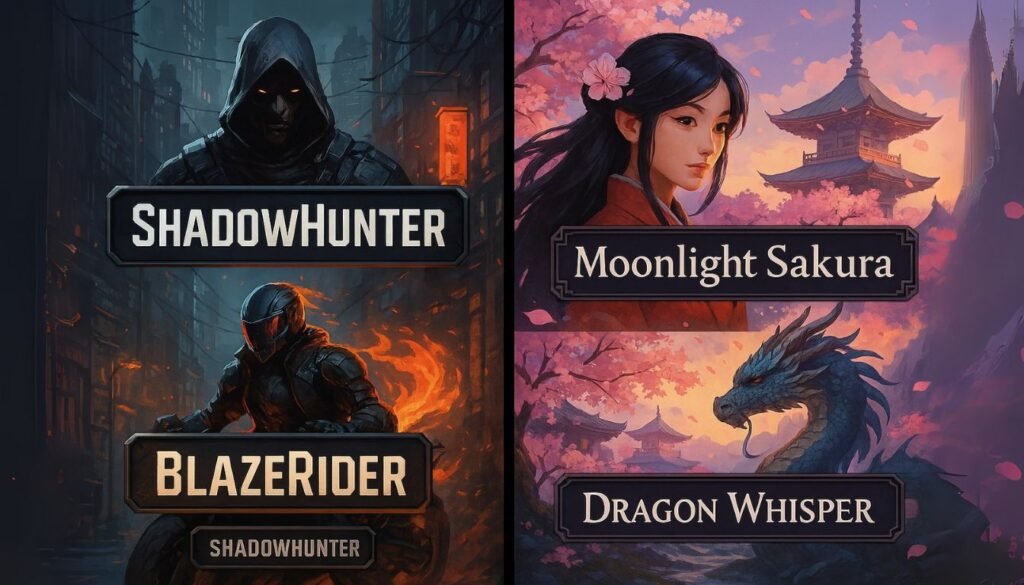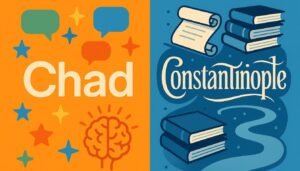
Yo, picture this: you’re scrolling through your Steam library or firing up the Switch, and you spot a game title that just hits different. Like, why does that Japanese RPG sound so poetic and mysterious, while the Western blockbuster feels all gritty and in-your-face?
I’ve been geeking out over this lately – the whole deal with how gaming names shake out between Western devs and Asian ones. It’s not just random; it’s tied to culture, marketing tricks, and how stuff gets tweaked for different crowds. Grab your coffee, ’cause we’re diving into this like old pals swapping stories. I’ll throw in some pointers to keep it snappy.
Why Game Titles Feel So Different
Okay, so Western game titles? They’re usually straight-up punchy. Think Grand Theft Auto or The Last of Us – short, snappy, and they scream action or drama right away. Devs from the US or Europe craft ’em to grab you by the collar and not let go, especially for that global market.
Asian titles, mostly from Japan but also Korea and China, often start with the home crowd in mind. They pack in wordplay, folklore nods, or super descriptive vibes using kanji or romaji. But when they hit the West, bam – localization teams rework ’em to avoid lawsuits, fix weird pronunciations, or just make ’em cooler for English speakers.
It’s hilarious how much changes. Here’s a quick pointer list of some classic swaps that show the gap:
- Biohazard → Resident Evil: The original Japanese name was too on-the-nose and clashed with some band or old game trademark. They flipped it to “Resident Evil” to amp up that creepy, home-invasion horror feel – way more gripping for us Western folks.
- Gyakuten Saiban (Turnabout Trial) → Phoenix Wright: Ace Attorney: Straight translation? Boring courtroom lingo. They slapped on the hero’s new Western-style name (Phoenix Wright sounds like a badass lawyer, right?) and added “Ace Attorney” for that courtroom thriller punch. Keeps the fun without the confusion.
- Dōbutsu no Mori (Animal Forest) → Animal Crossing: Japan’s all about that chill forest life, but “Crossing” hints at visiting pals and building your world. It’s less literal, more inviting – perfect for cozy gamers everywhere.
- Akumajō Dracula (Demon Castle Dracula) → Castlevania: That mouthful? Nah, they went with a nod to Transylvania for that vampire castle vibe. Shorter, spookier, and easier to yell during a boss fight.
- Pocket Monsters → Pokémon: Obvious, huh? But shortening it to “Pokémon” made it a mega-brand – cute, catchy, and way less clunky than explaining “pocket monsters” to your buddy.
You see the pattern? Asian originals lean poetic or symbolic, like dragons for power in Ryū ga Gotoku (which became Yakuza to spotlight the crime boss world). Western versions crank up the edge or simplicity. It’s all about selling the game without tripping over language barriers.
Now, Character Names – That’s Where It Gets Personal
Alright, shifting gears to the folks in the games. Western characters? Names like Kratos or Lara Croft – real-world inspired, maybe with a mythical twist, but they feel grounded. Alliteration makes ’em stick, like in God of War or Tomb Raider.
Asian games, especially Japanese ones, go fantastical: names pulled from nature, spirits, or made-up words that mean something deep in kanji. Think elemental vibes or puns on looks. But localization? Oh man, it can get awkward or straight-up funny.
Japanese devs sometimes try “Western” names for cool factor, but they come out wonky ’cause English isn’t their first rodeo. And Western games naming Asian chars? They might stick to stereotypes or anglicize ’em. Pointers on some standout examples:
- Lizardon → Charizard (from Pokémon): Japan’s “lizard dragon” is spot-on descriptive, but it didn’t match the fiery dino look. “Charizard” adds a charbroiled pun – way more fun and fiery for English players.
- Purin → Jigglypuff: Named after a wobbly Japanese pudding? Cute, but confusing if you’re hungry. “Jigglypuff” nails the bouncy, singing puffball energy without the snack mix-up.
- Gekkouga → Greninja: A ninja-frog pun from Japanese lore? Lost on most of us. “Greninja” mashes French “grenouille” (frog) with ninja – exotic and badass, blending cultures smoothly.
- Reflet → Robin (from Fire Emblem): The original’s a mouthful and tied to some deep lore. “Robin” is simple, neutral, and lets you role-play without tongue-twisters.
- Rockman → Mega Man: Trademark beef in the US killed the rocky dude name. “Mega Man” just sounds epic and powers up the hero vibe.
And don’t get me started on those cringey Japanese attempts at Western names, like “Kart Bradfield” in an old shooter or “Maxwell Cougar” in a witch game.
They’re trying for that action-hero swagger, but it lands like a bad dub. On the flip side, Western games with Asian chars, like Hanzo in Overwatch, keep it authentic but trope-y with ninja flair. It’s all about fitting the story without offending or confusing.
The Bigger Picture – Culture Clash or Cool Fusion?
Man, this stuff shows how gaming bridges worlds but bumps into ’em too. Asian names bring that symbolic magic – dragons, spirits, puns that make you think. Western ones? Practical, relatable, like naming your character after your neighbor.
With global hits like Elden Ring mixing it up, we’re seeing more hybrids. Esports usernames add flavor too: Asian gamers love numbers and clever twists, while Western ones go meme-y or edgy.
At the end of the day, these differences make games richer. Next time you’re playing, chuckle at a renamed title – it’s the devs hustling to share their world with you. What do you think? Got a fave example? Hit me up in the comments; let’s keep the convo going!



